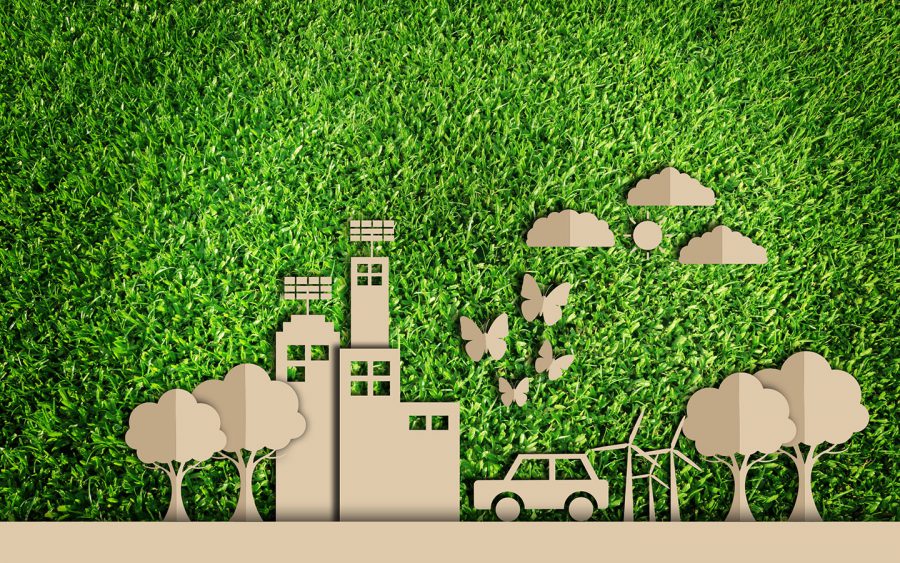Similarly as in the world, there are more and more examples of climate-responsible business operations in the Czech Republic. Companies opt for carbon neutrality and are starting to change their business strategies with towards a greater sustainability. The growing number of working positive examples also proves that sustainability is not only a cost at the expense of profits, but on contrary can significantly contribute to increased profitability.
1.Kofola
Since 2010, Kofola has been intensively dealing with topics such as water protection, waste minimization and carbon neutrality, which they would like to achieve by the end of the decade. Sustainable initiatives affect the whole life cycle of their products. From raw materials, through technology, production to the mode of transport. And finally, there are also wastes – both those from production and those from used packaging.
The pillars of Kofola’s strategy to reduce its carbon footprint are:
- Selection of raw material suppliers – Kofola prefers local suppliers.
- Transport of products – Almost half of the Kofola fleet does not run on diesel, but on compressed natural gas (CNG). Compared to conventional trucks, their carbon footprint is by a quarter lower. In 2020, Kofola plans to have up to 60 CNG trucks.
- Reduction of packaging and sale of products without packaging – Kofola strives to prioritize high-capacity packaging such as beverage kegs (KEG) and Bag in-Box (BiB) systems, which are the most carbon-efficient. They also support returnable packaging and its reuse.
- Production processes and reduction of electricity consumption
- Offset by planting trees

2. Velux
In September 2020, the Velux Group announced that it would erase its historic carbon footprint from its inception in 1941 by 2041 and become lifelong carbon neutral by the 100th anniversary of its founding. Velux will thus be one of the first companies in the world in the field of construction to take responsibility not only for future but also for past CO2 emissions. In total, this would be 5.6 million tonnes of direct and indirect CO2 emissions (equivalent to the annual emissions of 800,000 EU citizens). Velux will work with the World Wide Fund for Nature (WWF), through specially developed projects to protect valuable natural forests and wildlife (reforestation and restoration of damaged forests, etc.) and to support the conservation of biodiversity and the improvement of local conditions.
In the future, the VELUX Group is also committed to significantly reduce its own carbon emissions and those in the company’s value chain (eg purchased goods and services, waste generation and transportation) in line with the most ambitious goal of the Paris Agreement to reduce global warming by 1.5 ° C.
Lifelong carbon neutrality is a new pioneering commitment initiated by the VELUX Group and prepared in cooperation with WWF. Its intention is to accept responsibility for both past and future emissions. An integral part of this commitment is the protection of valuable natural forests and wildlife around the world for present and future generations.
David Briggs, CEO of the VELUX Group, says: “The planet is facing a serious climate and natural crisis that requires extraordinary measures. In line with our company’s values, we want to do our best, which is why we have prepared a lifelong carbon neutrality plan. This is a new commitment involving a 20-year partnership with WWF to capture carbon emissions in line with our historical carbon footprint. At the same time, we will significantly reduce our future CO2 emissions and ask our suppliers to do the same. Let’s hope other companies get inspired and become “lifelong carbon neutral” to create a sustainable future for all. ”

3. CTP
CTP, the owner and operator of industrial and office portfolios , has also undertaken to make their business net carbon neutral by 2023. Their aim is not only to be an industry leader in the transition to a carbon-neutral economy but to positively impact the communities where they operate.
CTP has increased their sustainability efforts in the past years and have introduced a number of initiatives that will impact the full scope of their operations. Among their specific actions you can find:
- Ambition to foster circular economy in their parks – The circular economy is a “closed-loop” system that minimises waste and resource consumption. CTP has underwent some pilot audits for their parks and undertook several improvements in operations of their parks to maximise sustainability
- Solar plan – starting in 2020 all CTP´s new buildings will be constructed “solar ready.” They also offer 100% renewable energy to their clients . Their solar target is to develop 20MW of electricity capacity in the Czech Republic during 2020.
- CTForest – A key pillar of their net carbon neutral strategy is the purchase and maintain natural forests. To this end, CTP has committed to investing in forest preserves across CEE on a 1:1 ratio to their built portfolio.
- BREEAM certification for its entire portfolio of industrial properties. BREEAM is the world’s first standardised method for assessing the sustainability of buildings. In 2012 CTP became the first company outside the UK to be awarded the highest level of BREEAM certification for their portfolio of office buildings.
- Smart buildings – CTP tries to make their parks smart to measure energy consumption in real-time and make it possible to identify ways to make building operations even more energy efficient.
Contact us for consultancy on climate neutral and carbon reduction strategies tailored to your business operations.




